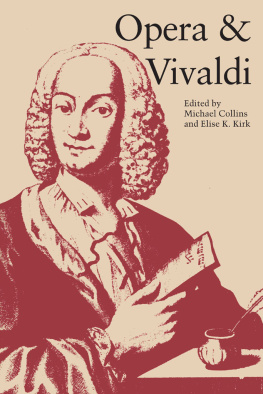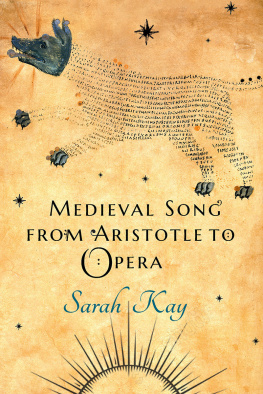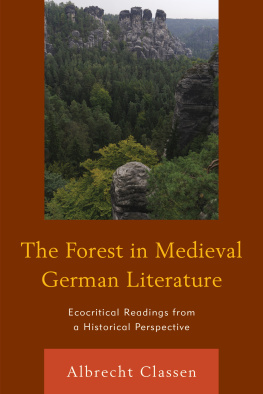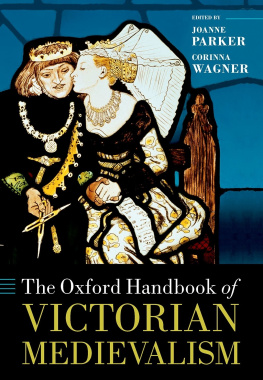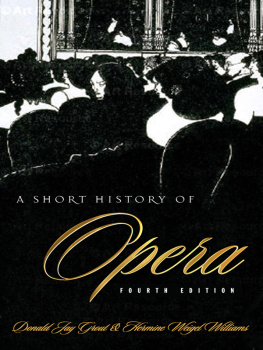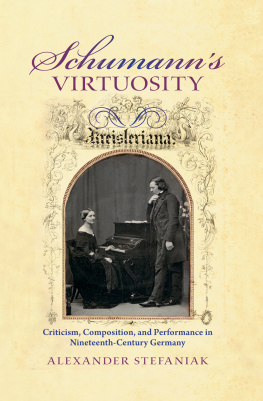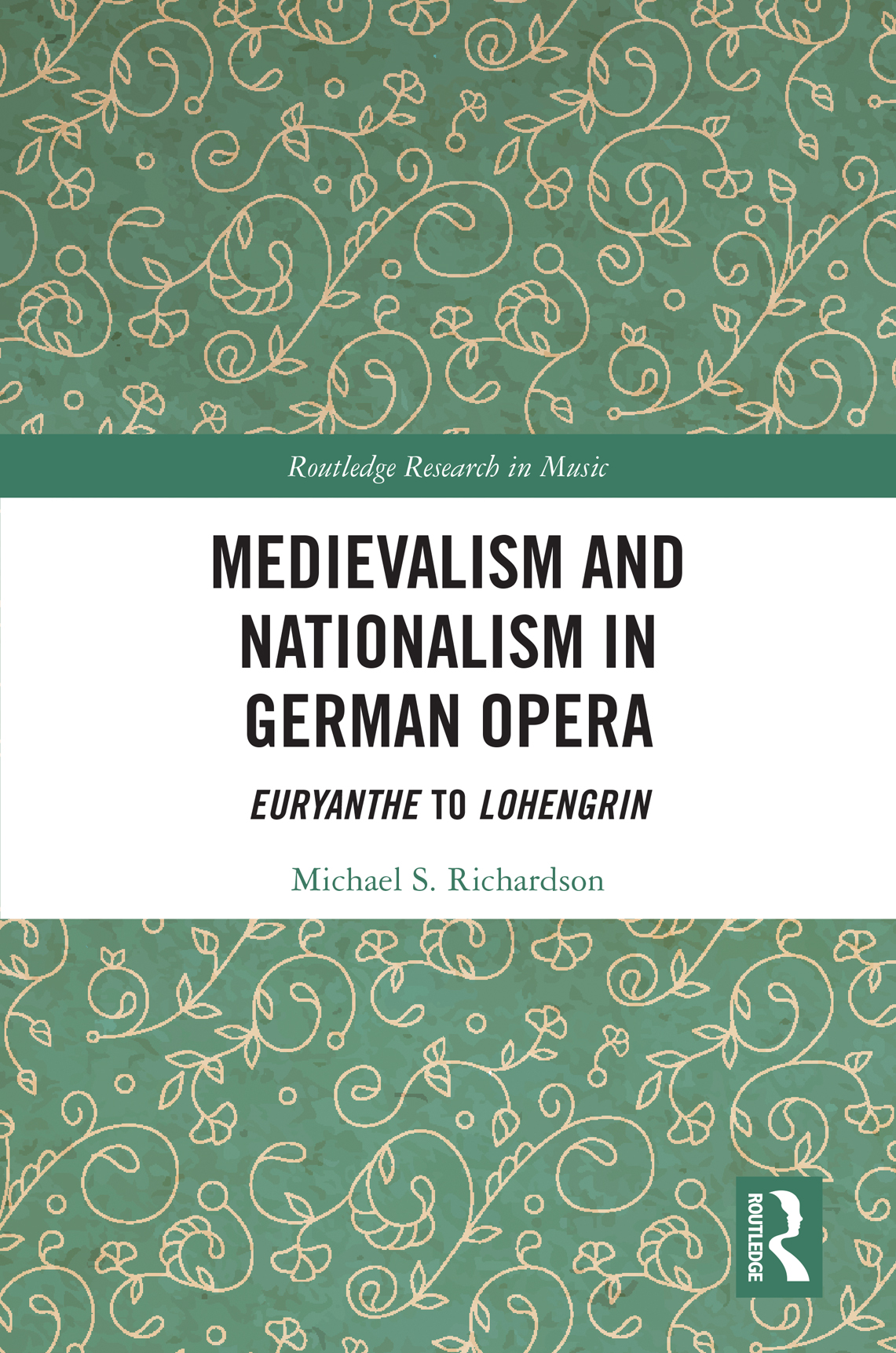
Medievalism and Nationalism in German Opera
Medievalism, or the reception or interpretation of the Middle Ages, was a prominent aesthetic for German opera composers in the first half of the nineteenth century. A healthy competition to establish a Germanic operatic repertory arose at this time, and fascination with medieval times served a critical role in shaping the desire for a unified national and cultural identity. Using operas by Weber, Schubert, Marshner, Wagner, and Schumann as case studies, Richardson investigates what historical information was available to German composers in their recreations of medieval music, and whether or not such information had any demonstrable effect on their compositions. The significant role that nationalism played in the choice of medieval subject matter for opera is also examined, along with how audiences and critics responded to the medieval milieu of these works.
In this book, readers will gain a clear understanding of the rise of German opera in the early nineteenth century and the cultural and historical context in which this occurred. This book will also provide insight on the reception of medieval history and medieval music in nineteenth-century Germany, and will demonstrate how medievalism and nationalism were mutually reinforcing phenomena at this time and place in history.
Michael S. Richardson is an Assistant Professor of Musicology at the University of St. Thomas in Houston, Texas. He completed his PhD in Music History and Theory from Stony Brook University, and he conducted his dissertation research in Germany under the guidance of Annette Kreutziger-Herr.
Routledge Research in Music
Double Lives
Film Composers in the Concert Hall
James Wierzbicki
John Williams
Changing the Culture of the Classical Guitar
Michael OToole
Paul Dukas
Legacies of a French Musician
Edited by Helen Julia Minors and Laura Watson
The Consolations of History in Richard Wagners Gtterdmmerung
Alexander Shapiro
From Music to Sound
The Emergence of Sound in 20th- and 21st-Century Music
Makis Solomos
Performing Arts in Transition
Opera, Dance, and Theatre in European and Nordic Countries around 1800
Edited by Randi M. Selvik, Svein Glads and Anne Margrete Fiskvik
Australias Jindyworobak Composers
David Symons
Medievalism and Nationalism in German Opera
Euryanthe to Lohengrin
Michael S. Richardson
For more information about this series, please visit: https://www.routledge.com/Routledge-Research-in-Music/book-series/RRM
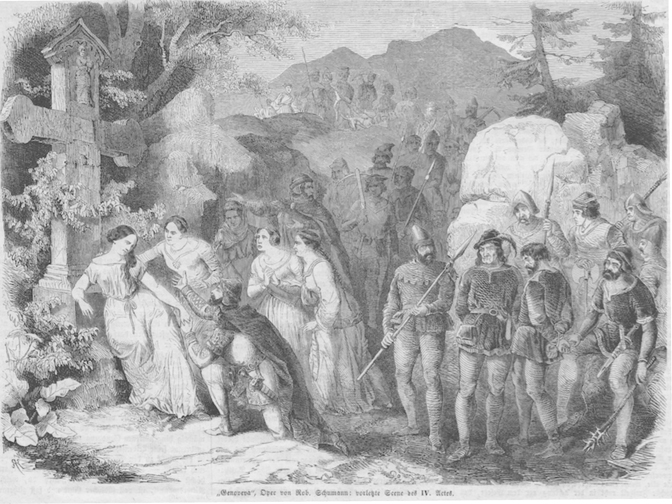
Genoveva, Oper von Rob. Schumann: vorlete Scene des IV. Actes (Genoveva, Opera by Rob. Schumann: penultimate Scene of Act IV) from the Illustrirte Zeitung, July 13, 1850, pg. 24. Reproduced with permission from the Robert-Schumann-Haus Zwickau (99.13-C2).
First published 2021
by Routledge
2 Park Square, Milton Park, Abingdon, Oxon OX14 4RN
and by Routledge
52 Vanderbilt Avenue, New York, NY 10017
Routledge is an imprint of the Taylor & Francis Group, an informa business
2021 Michael S. Richardson
The right of Michael S. Richardson to be identified as author of this work has been asserted by him in accordance with sections 77 and 78 of the Copyright, Designs and Patents Act 1988.
All rights reserved. No part of this book may be reprinted or reproduced or utilised in any form or by any electronic, mechanical, or other means, now known or hereafter invented, including photocopying and recording, or in any information storage or retrieval system, without permission in writing from the publishers.
Trademark notice: Product or corporate names may be trademarks or registered trademarks, and are used only for identification and explanation without intent to infringe.
British Library Cataloguing-in-Publication Data
A catalogue record for this book is available from the British Library
Library of Congress Cataloging-in-Publication Data
A catalog record has been requested for this book
ISBN: 9781138630543 (hbk)
ISBN: 9781315209340 (ebk)
Typeset in Times New Roman
by codeMantra
To my parents
AMZAllgemeine Musikalische ZeitungAWMZAllgemeine Wiener Musik-ZeitungBAMZBerliner Allgemeine Musikalische ZeitungDJMDwights Journal of MusicNZMNeue Zeitschrift fr MusikTMWThe Musical WorldMmajormiminor
Siegfried exonerates Genoveva, her life is spared, and the couple is reunited. The bishop blesses the happy pair, and the elated throng is overcome with joy as they sing a robust four-fold declamation of Heil! (hail!) in a sunny E major. The curtain falls, and all may now leave the theater filled with a glorious image of a nations past, along with an optimistic vision for that nations future. Such may have been the intention, at least, for Robert Schumanns only opera Genoveva of 1850, set in Germanys fabled medieval past. Medievalism, or the reception or interpretation of the Middle Ages, was a prominent aesthetic for German opera composers in the first half of the nineteenth century.
Interest in the Middle Ages and in medieval lore has been a common theme throughout the post-medieval history of Western Europe. In Germany during the
Considering such fragmentation alongside the desire for a nation, the question as to what was German was perhaps most open to debate and definition in the early to mid-nineteenth century than at any other time. The question was ist deutsch? was in fact a contested one, with Richard Wagner weighing in on the matter in an 1865 essay featuring that exact question as its title. Wagner looked to the nations past to uncover the German spirit, singling out Regarding the special significance of medievalism for German nationalism, Francis Gentry and Ulrich Mller write,
All European language and cultural groups sought their self-affirmation and national identity in their own past, which, for most, meant the Middle Ages. This process applies especially to the Germans, who lived without a unified national state in territorial fragmentation and political impotence and who had to procure their political utopia from the alleged glorious past of the Holy Roman Empire of the German Nation.
The statehood of the Holy Roman Empire from the medieval past had in part facilitated and enabled a growing sense of nationalism that ran parallel with the overwhelming regional patriotism that dominated throughout much of nineteenth-century Germany.
Medievalism was one of the most prominent features of the In his 1774 essay Another Philosophy of History for the Education of Mankind, Herder expounds on the glories of medieval times when he writes that
the spirit of the age weaved and bound together the most diverse characteristicscourage and monkery, adventure and gallantry, tyranny and magnanimityinto the whole that confronts us, standing between the Romans and ourselves, like a ghost or a romantic adventure. It was once nature, oncetruth.
He later in the essay exalts the time period in nationalistic terms by praising the
many communities of brothers living beside one another
Next page

